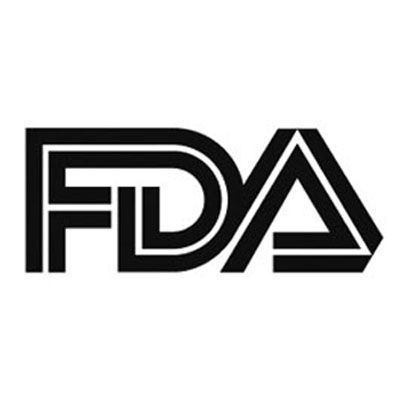FDA Grants Fast Track Designation to NUV-422 for High-Grade Gliomas
Following an orphan drug designation earlier in 2021, NUV-422 has been granted a fast track designation for the treatment of high-grade gliomas.

An investigational cyclin-dependent kinase (CDK) 2/4/6 inhibitor, NUV-422, was granted an FDA fast track designation for the treatment of patients with high-grade gliomas, including glioblastoma multiforme, according to a press release by Nuvation Bio Inc.1
NUV-422 is a potent inhibitor of CDK 2, 4, and 6. Preclinical research has shown NUV-422’s ability to penetrate the blood-brain barrier and limit CDK1 inhibition, which can limit the toxicities often observed with other second-generation inhibitors. Previously, the agent received an orphan drug designation from the FDA for the treatment of malignant gliomas.
"We are pleased that NUV-422 received FDA Fast Track designation because it highlights the serious unmet need of patients with brain cancer and the potential of our lead drug candidate NUV-422 to serve as an innovative new treatment option for high-grade gliomas, including glioblastoma multiforme," said David Hung, MD, founder, president, and chief executive officer of Nuvation Bio, in a press release.
The CDK 2/4/6 inhibitor is under investigation in a first-in-human, open-label, phase 1/2 dose-escalation and multiple expansion-cohort study (NCT04541225), which includes adult patients with recurrent or refractory high-grade gliomas and other solid tumors including metastatic breast cancer (mBC), with and without brain metastases, and recurrent or refractory metastatic castration-resistant prostate cancer (mCRPC).2
The study will include 218 patients who will be assessed for the primary end point of the incidence of treatment-emergent adverse events (AEs), serious AEs, and dose-limiting toxicities in phase 1. The phase 2 co-primary end points include objective response rate, duration of response, NUV-422 concentration in plasma, including peak plasma concentration, NUV-422 half-life in plasma, the concentration of NUV-422 in brain tumor tissue, and the effects of NUV-422 on brain tumor cell proliferation ratio pre- and post-treatment.
Patients are eligible to enroll given they have recovered from toxicity caused by prior anti-cancer therapy, have adequate bone marrow and organ function, are appropriate candidates to receive NUV-422 monotherapy, and have a life expectancy of > 3 months. All patients must also have either an ECOG performance score ≤ 2 or a Karnofsky Performance Status score ≥ 60 to be included in phase 1. The phase 2 requirements include histologically confirmed disease, prior radiotherapy, and either a KPS score ≥ 70 or ECOG performance score ≤ 2.
The study is actively recruiting patients with solid tumors in Massachusetts, New York, North Carolina, Texas, and Utah who meet the eligibility requirements.
"Enrollment is ongoing in our expanded Phase 1/2 monotherapy study of NUV-422 for the treatment of adults with recurrent or refractory high-grade gliomas and solid tumors. We look forward to continuing to work closely with the FDA to expedite the development of NUV-422 with data from the Phase 1 portion of the study, which is on track for 2022," said Hung, in the press release.1
References:
1. Nuvation Bio receives FDA fast track designation for NUV-422 for the treatment of high-grade gliomas, including glioblastoma multiforme. News release. Nuvation Bio. December 15, 2021. Accessed December 15, 2021. https://prn.to/3oYyENs
2. Study of NUV-422 in adults with recurrent or refractory high-grade gliomas and solid tumors. Clinicaltrials.gov. Accessed December 15, 2021.
FDA Approves FoundationOne CDx as Companion Diagnostic for Tovorafenib in Pediatric Low-Grade Glioma
January 17th 2025FoundationOne CDx is now FDA-approved as the first companion diagnostic for tovorafenib, enabling targeted treatment for relapsed/refractory pediatric low-grade glioma with BRAF mutations or rearrangements.
Read More